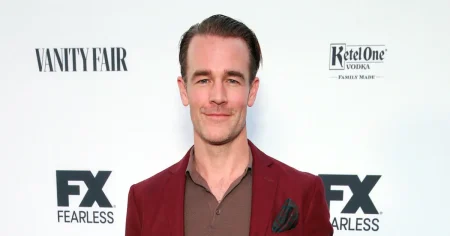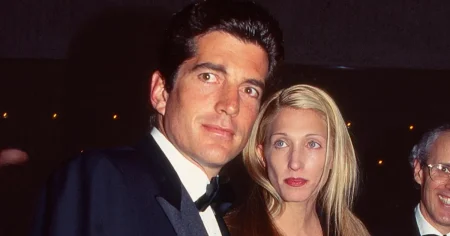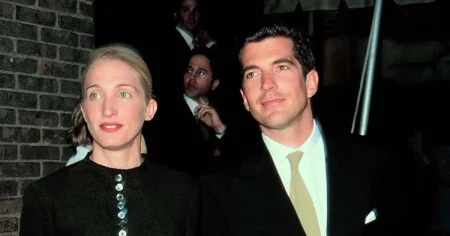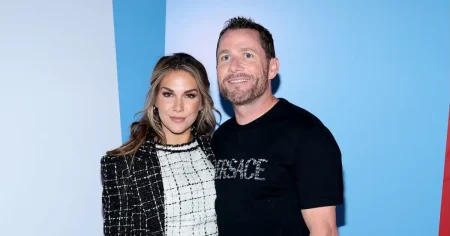Nikki Glaser’s SNL Debut Stirs Controversy Amid Dream Come True
Comedian Nikki Glaser recently fulfilled a lifelong dream by hosting Saturday Night Live on November 8, an experience she described as utterly surreal. Taking to Instagram the following day, the 41-year-old comedian could barely contain her excitement, writing that she was still processing the experience. “I can’t believe how amazing this cast and crew was,” Glaser shared with genuine enthusiasm. “As a fan of the show, I just have to tell all the other fans that everyone at SNL is just as talented, elite, cool and kind as you’d hope they’d be. Literally everyone.” Her sentiment revealed the authentic excitement of someone who had long admired SNL from afar and finally got to experience the legendary show from the inside. For Glaser, who has built her comedy career on pushing boundaries, the opportunity to stand on the iconic Studio 8H stage represented a pinnacle career moment that she admitted she’ll “never get over.”
The FBoy Island host launched into her hosting duties with a characteristically edgy monologue that tackled some unexpected topics. Glaser began by discussing human trafficking awareness posters in women’s restrooms, noting the stark contrast with men’s facilities which lack such warnings. She observed how these signs appear in multiple languages in every women’s bathroom stall, reflecting on the gendered nature of these safety concerns. “Men’s restrooms do not have these signs,” she pointed out, crafting a joke around the disparity. She further explored the generational difference in safety concerns, noting that her Generation Z friends seem particularly worried about trafficking – a fear she claimed was less prevalent during her youth. “I’m 41. That was not a fear of mine ever in my 20s,” she explained, suggesting that her generation had different primary safety concerns during their young adult years. Glaser’s commentary highlighted how societal awareness around trafficking has evolved over time, though her comedic framing of the serious issue would soon raise eyebrows.
As Glaser’s monologue continued, she ventured into increasingly controversial territory, particularly when discussing child safety. Recounting a conversation with her sister about her 4-year-old nephew’s bathing habits, Glaser constructed a joke about child abuse that would prove divisive among viewers. The comedian described questioning whether it was appropriate for her to shower with her nephew, even after her sister assured her it was fine. “I’m like, ‘That’s fine for you guys but are you really OK with an adult showering with your child?'” she recalled asking. The joke escalated when Glaser suggested her sister should supervise such a scenario, and when questioned why, replied with a deeply controversial punchline involving child molestation. The comedian attempted to frame the exchange as commentary on the importance of vigilance around child safety, concluding with, “Don’t trust anyone! I don’t even trust myself.” However, the subject matter and delivery proved too sensitive for many viewers, who felt the comedian had crossed a line between provocative comedy and inappropriate commentary on a deeply traumatic subject.
The backlash to Glaser’s monologue was swift and significant across social media platforms. Many viewers expressed discomfort and disappointment with her choice of material, particularly the segments addressing child abuse. “OK Nikki Glaser lost me cause why are we talking about molestation and pedophilia!???” wrote one viewer on X (formerly Twitter), encapsulating the sentiment of many who found the subject matter inappropriate for comedy, especially on a mainstream network program like SNL. Another viewer simply stated that Glaser was “really giving me the ick on SNL tonight,” reflecting how the comedian’s approach to controversial topics didn’t land with a significant portion of the audience. The social media reaction highlighted the ongoing debate about boundaries in comedy – where provocative material can either challenge audiences in meaningful ways or simply offend without purpose. As of this reporting, Glaser has not publicly addressed the criticism surrounding her monologue, leaving viewers to debate the merits and missteps of her comedic choices without further context from the comedian herself.
The controversy surrounding Glaser’s SNL appearance underscores the delicate balance comedians must strike when addressing sensitive topics. While comedy has long served as a vehicle for discussing uncomfortable truths and taboo subjects, the reception to Glaser’s monologue demonstrates that execution and context matter tremendously. Some defenders of edgy comedy might argue that provocative material serves an important cultural function by challenging social norms and encouraging conversations about difficult topics. However, critics maintain that certain subjects, particularly those involving harm to vulnerable populations like children, demand a more thoughtful approach than was evident in Glaser’s performance. The incident raises questions about the responsibility comedians bear when using their platform to address sensitive issues, especially on a show with SNL’s reach and cultural significance. It also highlights how quickly public opinion can shift in the age of social media, where reactions are immediate and widespread.
Despite the controversy, Glaser’s SNL hosting gig represents a significant milestone in her comedy career. Known for her work on Comedy Central roasts, her Netflix specials, and her hosting duties on FBoy Island, Glaser has built her brand on unflinching, boundary-pushing comedy. Her selection as an SNL host reflects her rising status in the comedy world, even as the mixed reception to her performance highlights the challenges of translating her particular comedic style to network television. For the show itself, which airs Saturdays at 11:30 p.m. EDT on NBC, Glaser’s episode becomes another chapter in its long history of cultural moments that sometimes unite and sometimes divide viewers. As the dust settles on this particular controversy, both Glaser and SNL will likely continue pushing comedic boundaries – perhaps with some lessons learned from this experience about how certain topics require especially careful handling, even in the pursuit of provocative comedy. The episode serves as a reminder that even as comedy evolves, the fundamental question remains: not just whether something can be joked about, but how those jokes are crafted and what purpose they ultimately serve.















